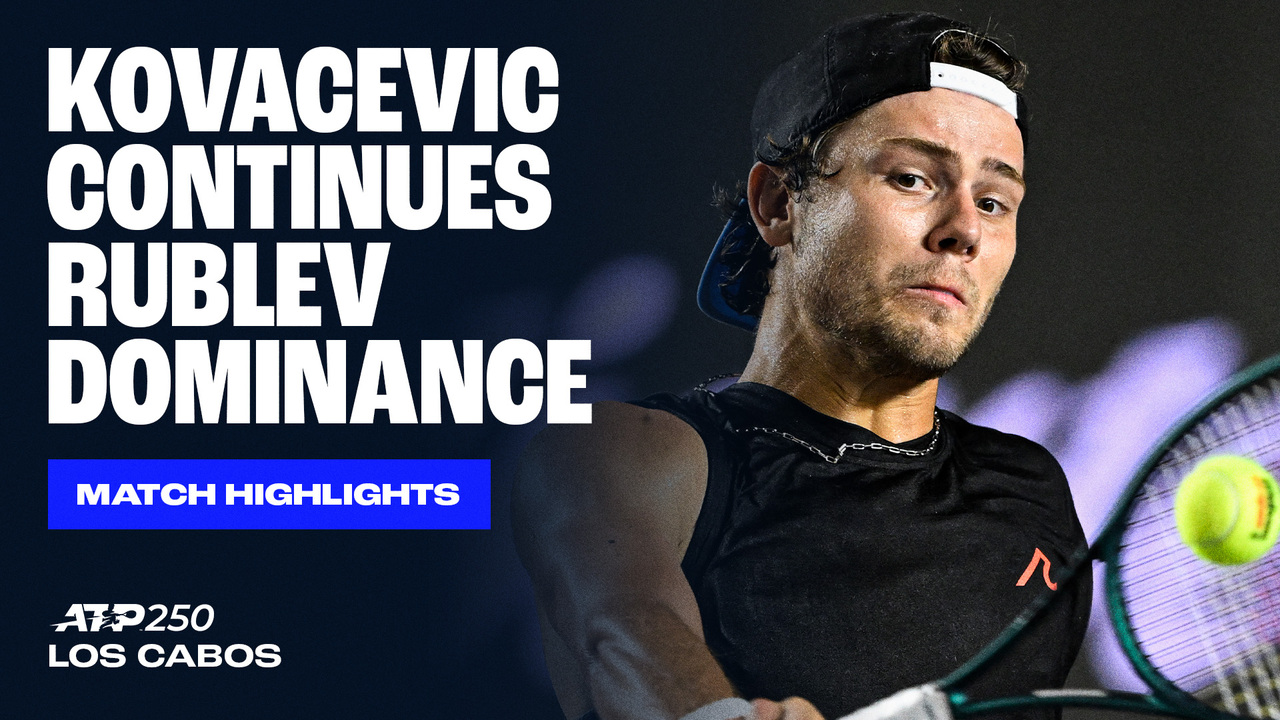The ATP Tour is a crucible of talent, skill, and relentless mental fortitude. Each match is a narrative, and sometimes, those narratives take an unexpected turn, revealing the raw emotional landscape that lies beneath the polished surface of professional tennis. Such was the case at the recent Los Cabos Open, where the tournament’s top seed, world No. 10 Andrey Rublev, faced a surprisingly challenging encounter against the unheralded American, world No. 76 Aleksandar Kovacevic.
An Upset in the Making
Rublev arrived in Los Cabos with the weight of expectation firmly on his shoulders, a consistent top-tier performer known for his explosive power and equally potent emotional displays. Kovacevic, conversely, represented a rising talent, eager to make his mark against established names. The semifinal clash promised an intriguing dynamic: the seasoned top-10 player against the hungry challenger with nothing to lose.
The match unfolded with a tense back-and-forth. Rublev initially secured the first set with a decisive 6-3, demonstrating the kind of dominance his ranking suggests. However, Kovacevic, refusing to be intimidated, rallied to take the second set 6-4, shifting the momentum and demonstrating a remarkable resilience. The stage was set for a thrilling deciding set, where mental toughness would prove paramount.
The Moment of Impact: A Racket`s Demise
As the third set progressed, the pressure intensified. With Kovacevic serving at a crucial juncture, holding a 5-4 lead and seeking to close out the match, Rublev found himself trailing 15-0. It was in this precise moment, a culmination of mounting frustration and the match slipping away, that Rublev`s renowned passion boiled over. In a visceral, undeniable release of pent-up emotion, he took his racket and struck it repeatedly against his leg, ultimately rendering it irreparable. This was not a subtle tap but a deliberate act of self-directed fury, a signature moment that has, on occasion, punctuated his career.
The immediate aftermath saw Rublev, having momentarily purged his frustration, win two consecutive points. It was a fleeting resurgence, a testament perhaps to the bizarre psychological effect such an outburst can sometimes have – a burst of renewed focus following a release. However, despite this momentary rally, he was unable to secure a break point, and Kovacevic, maintaining his composure amidst the drama, successfully held serve to close out the set 6-4, securing a monumental victory.
Beyond the Score: The Mental Game of Tennis
Rublev`s loss to Kovacevic was not merely an unexpected scoreline; it was a vivid illustration of the delicate balance between intensity and control that defines professional tennis. While Rublev`s powerful game and aggressive style are formidable, his propensity for visible frustration remains a recurring narrative. It raises the perennial question: does such an outburst serve as a necessary release, or does it ultimately hinder performance by diverting mental energy? In this instance, while it may have momentarily galvanized him, it did not alter the match`s ultimate trajectory.
For Aleksandar Kovacevic, this victory represents a career-defining moment. Defeating a top-10 player, particularly under such high-pressure circumstances and against a competitor known for his fiery spirit, underscores his potential and mental fortitude. It serves as a stark reminder that in tennis, rankings are merely a guide; on any given day, an unheralded player with tenacity can upset the established order.
Moving Forward
As the ATP Tour continues its global circuit, both players will carry the lessons from Los Cabos. Rublev will undoubtedly reflect on the fine line between passion and self-sabotage, an ongoing journey for many athletes. For Kovacevic, the win provides invaluable experience and a significant boost in confidence, signaling his arrival as a legitimate contender. The sport, in its raw, unvarnished moments like these, continues to offer compelling narratives that extend far beyond the final score.

